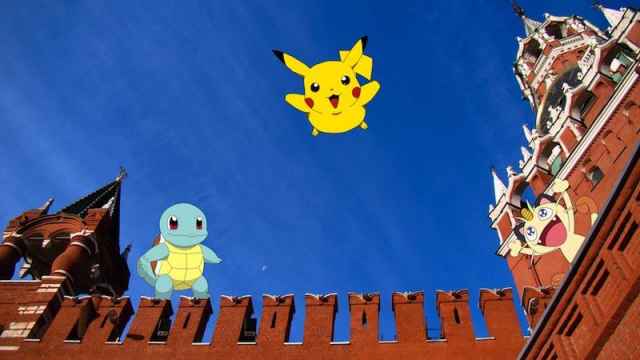Russia's consumer rights watchdog Rospotrebnadzor has been ordered to investigate the “possible harmful psychological effects” of the viral mobile game Pokemon Go, the Interfax news agency reported Wednesday.
Growing mobs of Muscovites prowling the parks, thoroughfares and back alleys of Russia's capital hunting for the animated creatures have alarmed a number of Russian officials and pundits.
The game has been decried as satanic, a CIA plot, and a potential threat to national security by a number of prominent Russians. Now Rospotrebnadzor will gather expert opinions from psychologists and teachers to investigate the game's possible hazardous effects on Russian players.
The government watchdog has asked experts to assess the game “in the very near future,” so that “every aspect of this new phenomenon” can be analyzed, said Russia's head doctor of sanitation, Anna Popova.
The recommendation will then be used to formulate a government response to the increasingly popular game.
Pokemon Go took the internet by storm when it was released in select countries on July 6. The game uses an augmented reality feature where virtual images are overlayed onto real-time footage of the user's immediate surroundings via their smartphone camera.
The Russian release of the game has been indefinitely delayed due to server capacity issues, but Russians have found ways to download the game by registering with Apple and Google app stores in countries such as the U.S.
A Message from The Moscow Times:
Dear readers,
We are facing unprecedented challenges. Russia's Prosecutor General's Office has designated The Moscow Times as an "undesirable" organization, criminalizing our work and putting our staff at risk of prosecution. This follows our earlier unjust labeling as a "foreign agent."
These actions are direct attempts to silence independent journalism in Russia. The authorities claim our work "discredits the decisions of the Russian leadership." We see things differently: we strive to provide accurate, unbiased reporting on Russia.
We, the journalists of The Moscow Times, refuse to be silenced. But to continue our work, we need your help.
Your support, no matter how small, makes a world of difference. If you can, please support us monthly starting from just $2. It's quick to set up, and every contribution makes a significant impact.
By supporting The Moscow Times, you're defending open, independent journalism in the face of repression. Thank you for standing with us.
Remind me later.




